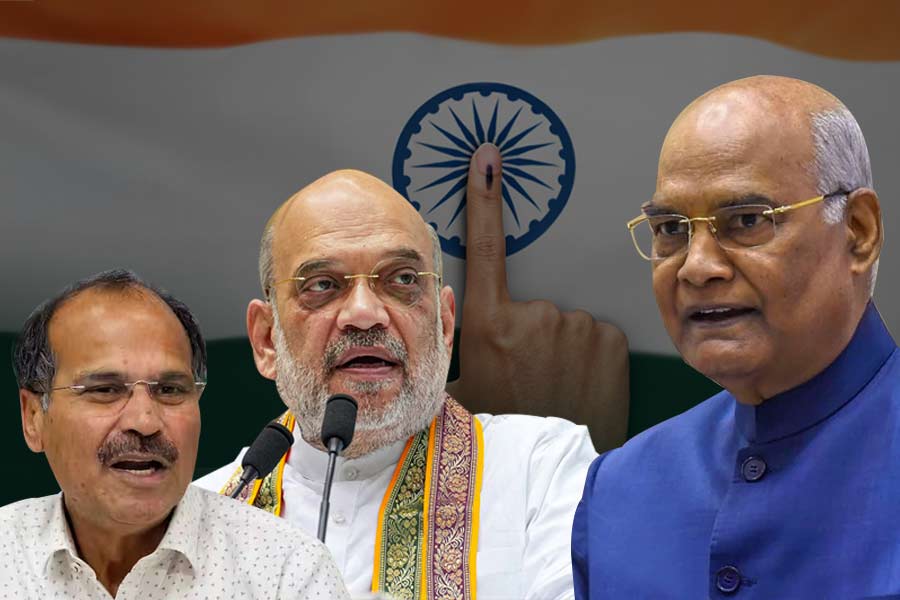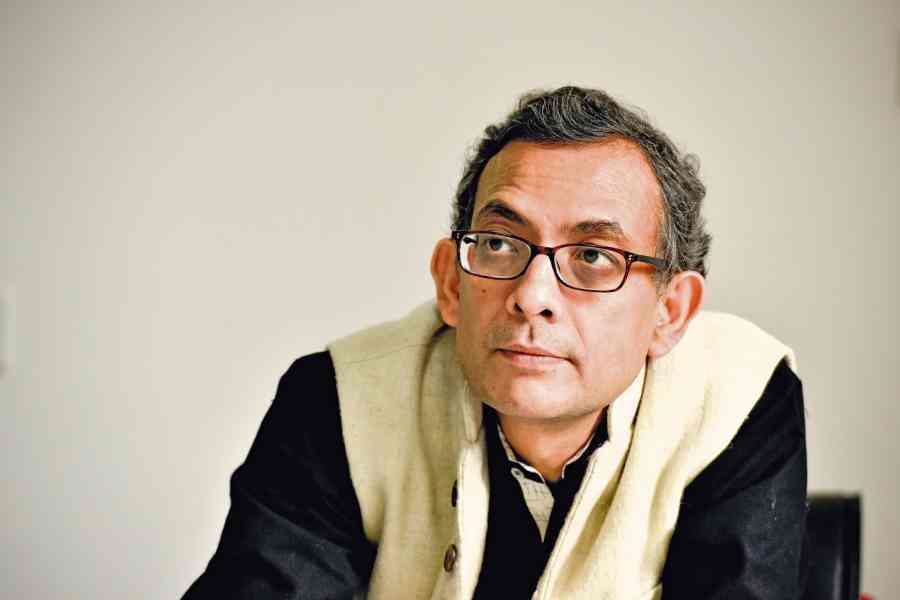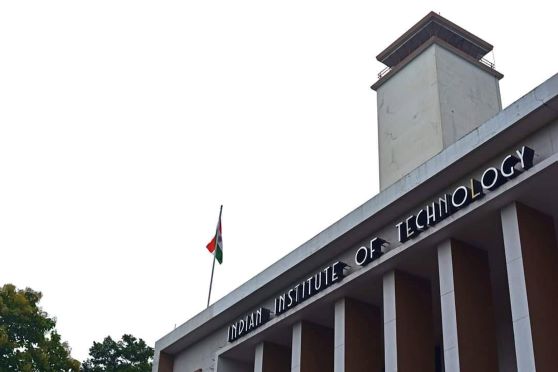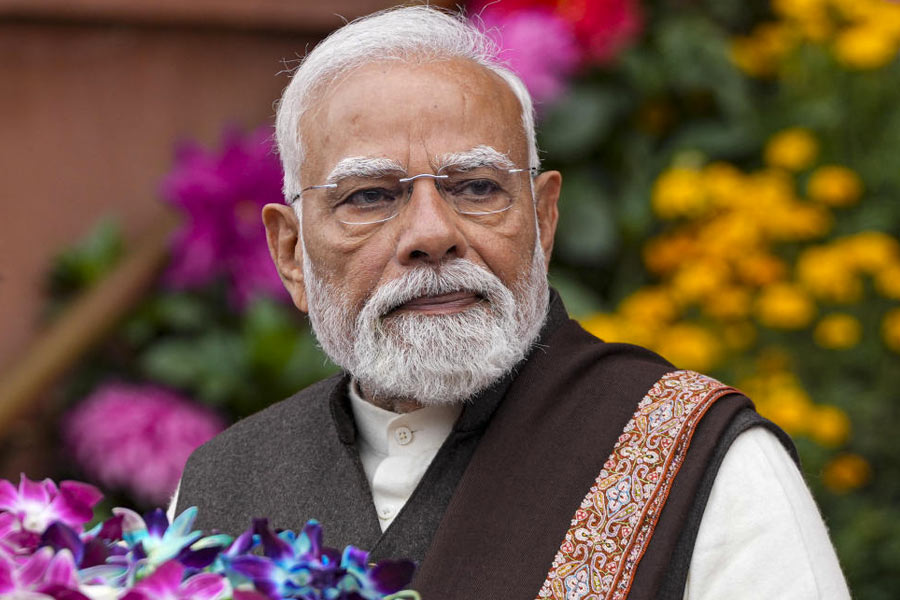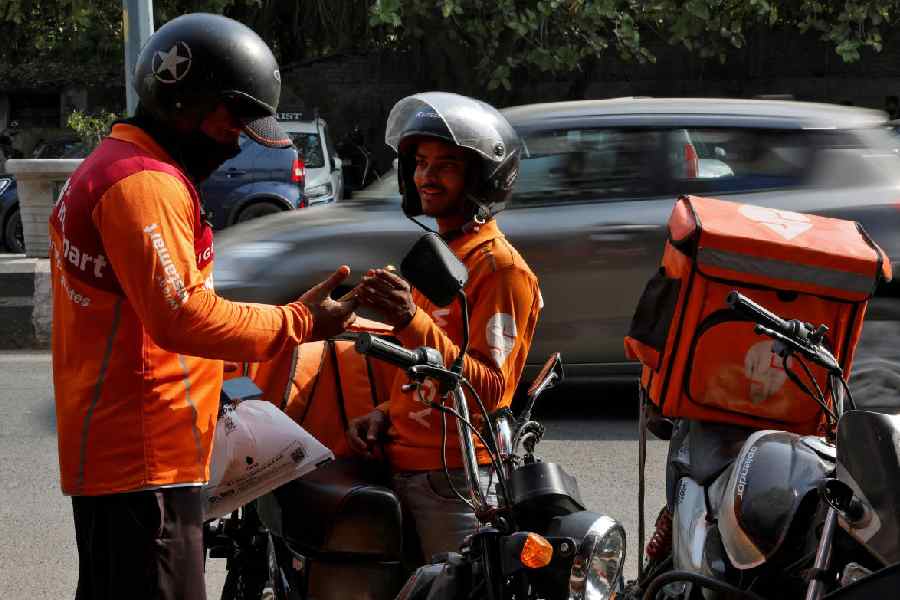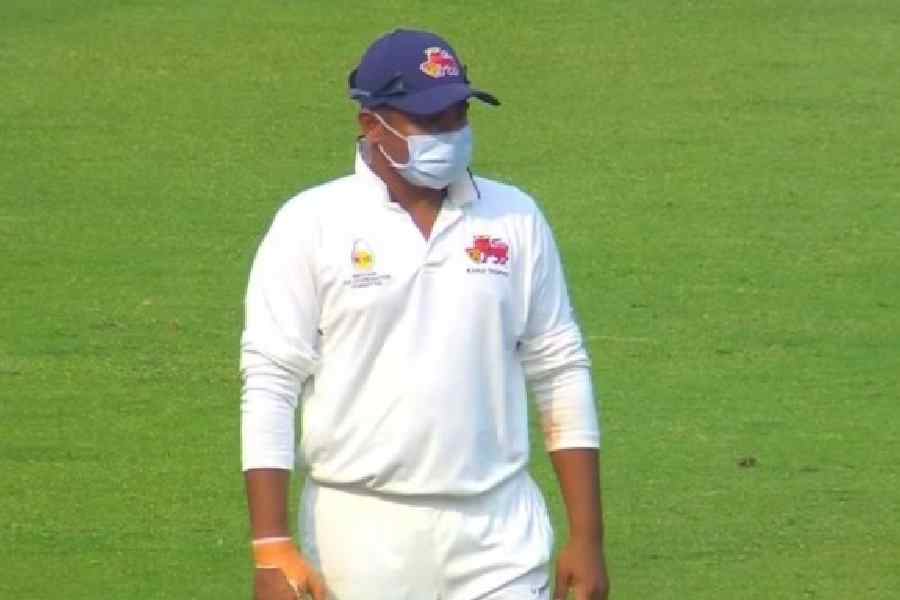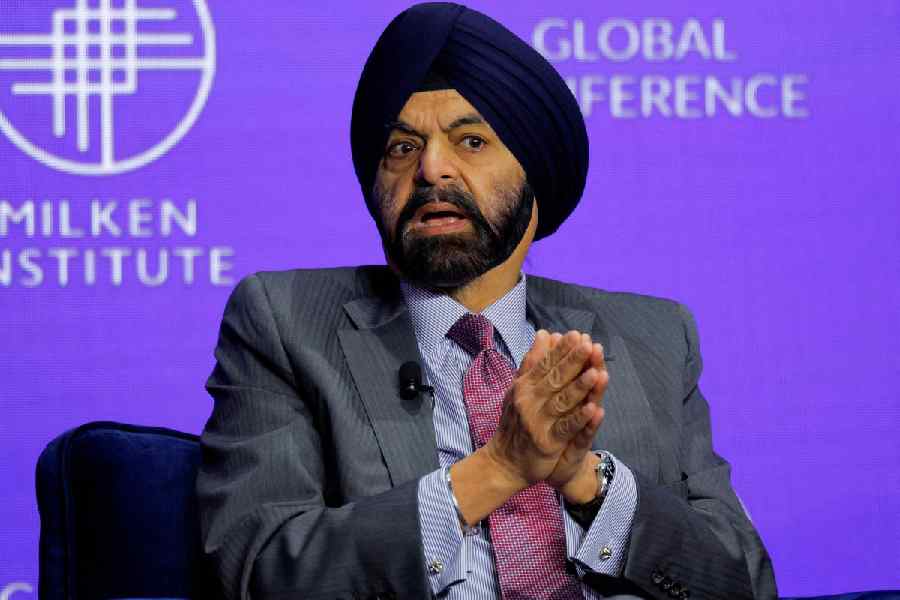The Centre on Saturday notified an eight-member high-level committee, to be headed by former President Ram Nath Kovind, to “make recommendations for holding simultaneous elections in the country”.
Under the panel’s ambit are the Lok Sabha, Assembly and local body polls. The terms of reference expect the committee to recommend specific amendments to the Constitution and “examine and recommend, if the amendments... would require ratification by the States”.
It has also been assigned to “recommend the modalities of use of a single electoral
roll and electoral identity cards”.
The only minister on the committee is Amit Shah, who holds the home and cooperation portfolios.
The notification says the committee “shall commence functioning immediately and make recommendations at the earliest”.
In response to a question, former Lok Sabha secretary-general P.D.T. Achary told The Telegraph: “They (the committee) may require about three to six months to properly examine the matter.”
The gazette notification by the law ministry comes a day after parliamentary affairs minister Pralhad Joshi — and not the minister of state (independent charge) for law and justice, Arjun Ram Meghwal — had announced the move to reporters.
Meghwal is only a special invitee to the committee.
Although former central vigilance commissioner Sanjay Kothari and former finance commission chairman N.K. Singh are on the panel, there is no former election commissioner or law commission member on it.
The other members of the panel are Congress Lok Sabha leader Adhir Ranjan Chowdhury; the former leader of the Opposition in the Rajya Sabha, Ghulam Nabi Azad; former Lok Sabha secretary-general Subhash C. Kashyap; and senior advocate Harish Salve. Legal affairs secretary Niten Chandra is secretary to the committee.
Adhir refuses
Late evening, Adhir Chowdhury wrote to Amit Shah declining to be part of the panel. “I have no hesitation whatsoever in declining to serve on the Committee whose terms of reference have been prepared in a manner to guarantee its conclusions. It is, I am afraid, a total eyewash,” he said in his letter.
This came soon after the Congress objected to the exclusion of its president and Opposition leader in the Rajya Sabha, Mallikarjun Kharge, while Ghulam Nabi Azad, who quit the Congress to form his own regional party in Jammu and Kashmir, was included.
Congress general secretary K.C. Venugopal tweeted: “In a shocking insult to Parliament, the BJP has appointed a former LOP to the Committee instead of Rajya SabhaLOP Sh. Mallikarjun @kharge ji.
“First, they bring this gimmick to distract from the Adani Mega Scam, unemployment, price rise and other pressing issues of the people. Then, to make matters worse, they try to tilt this committee’s balance by excluding fierce opponents. What is the reason behind Kharge ji’s exclusion?”
The notification refers to the views of the Law Commission and the parliamentary standing committee on personnel, public grievances, law and justice, which have spoken in favour of simultaneous polls for the Lok Sabha and state assemblies or, alternatively, state polls held in two batches.
The notification says the committee shall “examine and make recommendation for holding simultaneous elections to the House of the People (Lok Sabha), state legislative assemblies, municipalities and panchayats” — including the recommendation for the necessary amendments to the Constitution and relevant laws.
The first two categories of polls are conducted by the Election Commission of India, and the third by state election commissions. These are independent of each other.
Another task the committee has been assigned is to “examine and recommend the modalities of use of a single electoral roll and electoral identity cards for identification of voters in elections to the House of the People (Lok Sabha), state legislative assemblies, municipalities and panchayats”.
Both issues — simultaneous polls and a single electoral roll — have been on BJP manifestos, although many BJP-ruled states have their own voter lists.
The parliamentary standing committee had opposed a single roll on the ground of federalism, while the Election Commission of India had supported it on the ground that it avoided duplication of effort.
The notification adds that the committee shall recommend solutions relating to hung Houses, no-confidence motions and defections and suggest safeguards to ensure that the cycle of polls is not disturbed.
Besides examining the alternative possibility of having polls in batches if they can’t all be held in one go, the committee will also consider the issues of logistics, staffing and the requirement of EVMs and VVPAT machines.

